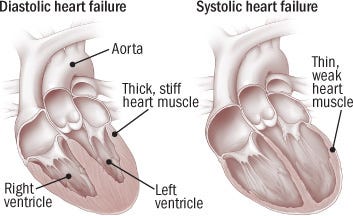Boston Sci Sensor System Predicts Heart Failure
November 23, 2016
HeartLogic can detect when a patient's condition worsens, according to a new study.
Nancy Crotti
 A suite of sensors loaded via software to an implanted defibrillator can predict heart failure by up to a month, according to a study by an international team of researchers.
A suite of sensors loaded via software to an implanted defibrillator can predict heart failure by up to a month, according to a study by an international team of researchers.
The team set out to investigate whether Boston Scientific's HeartLogic implantable defibrillators already used in heart failure patients could be retrofitted with sensors to track their conditions. They uploaded software to each patient's implanted defibrillator, a battery-powered device that delivers an electric shock if the patient's heart stops beating, according to a statement from Penn State University's School of Medicine.
The software allowed the defibrillators to also act as sensors, monitoring each patient's heart rate, activity, breathing, heart sounds and electrical activity in the chest. After following 900 patients for up to one year, the team based in the U.S. and Italy found that the sensors detected 70% of heart failure events in patients.
The sensor-armed devices also yielded anunexplained alert rate (alerts not followed by a heart-failure event) of 1.47 per patient per year, according to a statement by Boston Scientific. The trial data demonstrated that HeartLogic alert could notify clinicians of an impending heart-failure event in a median of 34 days in advance. Sensitivity at this level far exceeded the researchers' goal of greater than 40% detection.
While there were false positives, the number was within an acceptable range, according to the Penn State announcement. Results of the Multisensor Chronic Evaluation in Ambulatory Heart Failure Patients (MultiSENSE) study, funded by Boston Scientific,will be published in JACC Heart Failure.
"If you're going to monitor a hundred patients, it becomes a fairly manageable number of alerts that you have to deal with," said Penn State cardiologist and professor John Boehmer, who presented the findings at the recent American Heart Association annual meeting in New Orleans.
HeartLogic evaluates a patient's breathing, activity and heart sounds, and "puts that all together to give us an index that we believe is both sensitive and specific for heart failure," added Boehmer, a cardiologist at Penn State Health Milton S. Hershey Medical Center. "It's like having high blood sugar, if you're managing diabetes. The doctor doesn't need to know about every high blood sugar and every high blood sugar doesn't result in a hospitalization. But you want to treat it before it gets very high and the patient becomes so symptomatic they become ill and end up in the hospital. This is the same concept."
Information from the 500 patients in the study's development set was used to construct the HeartLogic composite index and alert algorithm by combining heart sounds, respiration rate and volume, thoracic impedance, heart rate, and activity. The 400 patients within the test set were sequestered for subsequent independent validation of HeartLogic, according to Boston Scientific.
"The successful results from this study and the development of the HeartLogic service are foundational to our continued development of differentiated solutions for the management of heart failure," said Kenneth Stein, MD, the company's chief medical officer for global health policy and rhythm management.
Boston Scientific has submitted a design dossier for the CE Mark and a premarket approval application for FDA approval of the HeartLogic service. The company plans to conduct post-approval studies, including Multiple cArdiac seNsors for mAnaGEment of Heart Failure (MANAGE-HF), to further evaluate the alert.
The HeartLogic Heart Failure Diagnostic Service is not currently available for use or sale.
Nancy Crotti is a contributor to Qmed.
Like what you're reading? Subscribe to our daily e-newsletter.
[Image courtesy of Harvard Medical School]
About the Author(s)
You May Also Like

.png?width=300&auto=webp&quality=80&disable=upscale)
